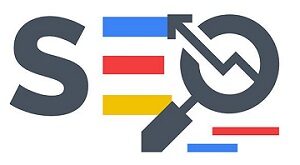As remote work becomes increasingly prevalent in today’s professional landscape, the need for efficient monitoring software for employees has never been greater. However, implementing such tools brings forth a delicate balance between privacy concerns, trust within the workforce, and the ultimate goal of maximizing productivity. Let’s get into the intricacies of remote tracking, exploring how businesses can navigate this landscape effectively.
How to Balancing Productivity and Trust
Navigating Privacy Concerns
One of the primary considerations when implementing monitoring software for employees is privacy. Employees rightly expect a level of privacy in their professional lives, even when working remotely. Tools like Controlio offer a solution by providing comprehensive monitoring capabilities while respecting individual privacy boundaries. By focusing on transparency and clear communication, businesses can mitigate concerns surrounding privacy invasion.
Building Trust Through Transparency
Trust is the cornerstone of any successful organization, and remote tracking can either bolster or erode this trust depending on how it’s implemented. To maintain trust among employees, businesses must be transparent about the use of monitoring software. Clearly articulating the purpose of tracking, its limitations, and the benefits it brings to both the company and its workforce fosters an environment of openness and accountability.
Maximizing Productivity Responsibly
While monitoring software for employees is often associated with surveillance, its primary goal should be to enhance productivity. Controlio, for instance, offers features that enable managers to identify inefficiencies, streamline workflows, and provide targeted support to remote teams. By leveraging these tools responsibly, businesses can create a culture of productivity without sacrificing employee autonomy or morale.
Striking the Right Balance
As it has privacy, trust, and productivity implications these require a nuanced approach. Businesses must recognize that remote tracking is not a one-size-fits-all solution and should be tailored to suit the unique needs of their organization. Regular feedback loops, employee input, and ongoing evaluation of monitoring practices are essential for maintaining this balance over time.
Empowering Employee Growth and Development
In addition to monitoring productivity, businesses can leverage tracking software to support the growth and development of their remote workforce. Controlio’s insights into employee performance can identify areas for skill enhancement and training opportunities. By using this data to provide targeted coaching and professional development resources, companies can empower their employees to reach their full potential, fostering a culture of continuous improvement and engagement. This approach not only enhances productivity but also demonstrates a commitment to investing in the long-term success and satisfaction of their remote teams.
Conclusion
Monitoring software for employees presents both challenges and opportunities for businesses operating in a remote environment. By prioritizing privacy, fostering transparency, and focusing on productivity enhancement, companies can harness the full potential of these tools while preserving trust within their workforce. Controlio stands out as a comprehensive solution that addresses the privacy, trust, and productivity implications of remote tracking, enabling businesses to navigate this landscape with confidence and integrity.



